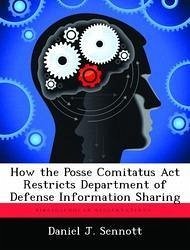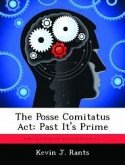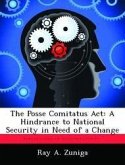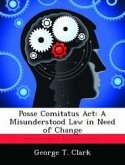This thesis argues that the Posse Comitatus Act (PCA) limits Department of Defense (DoD) information-sharing initiatives, but that such limitations are necessary to the preservation of civil-military relations. Throughout its history, the United States has struggled with the appropriate role of federal military forces in domestic operations, and the PCA reflects this struggle. With respect to domestic intelligence operations, the federal government has emphasized the importance of information sharing between the various federal agencies, including the DoD, and local law enforcement. The thesis begins by explaining the United States intelligence infrastructure, the relationships between the various agencies, and the functions of DoD within that structure. Next, the thesis analyzes the PCA and accompanying regulations designed to restrict the use of federal forces in a law enforcement capacity. Then, through three case studies dating from the 1920s, the 1970s, and post-11 September 2001, the thesis discusses the practical application of PCA restrictions on DoD domestic intelligence operations, as well as lessons learned from past operations. This section concludes that the PCA does in fact inhibit information sharing between DoD and state authorities. Finally, the thesis concludes that such inhibitions are crucial to preserving healthy civil-military relations within the United States.
Bitte wählen Sie Ihr Anliegen aus.
Rechnungen
Retourenschein anfordern
Bestellstatus
Storno








